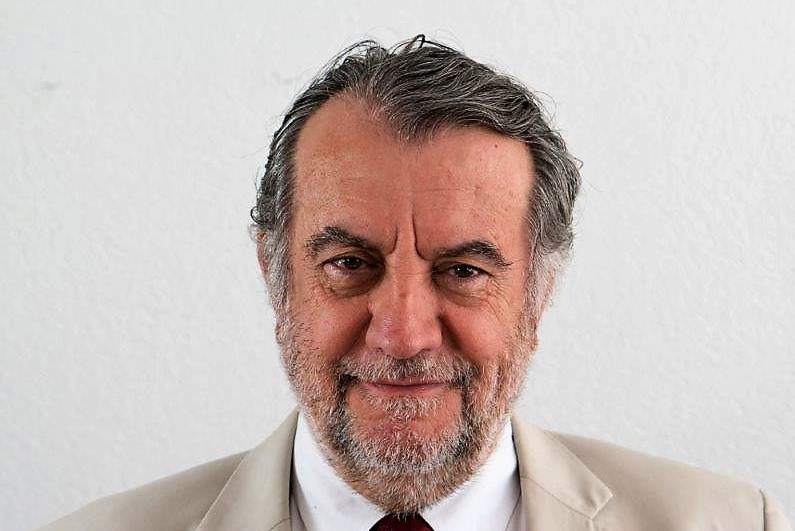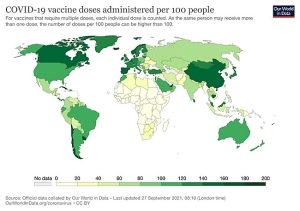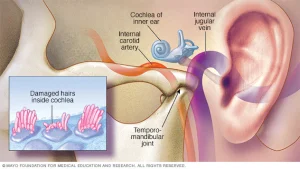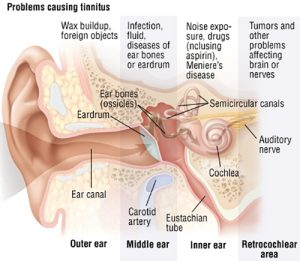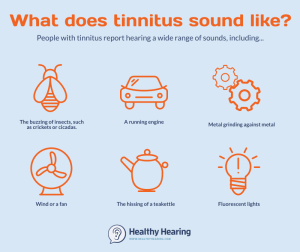At a time when the impact of COVID pandemic is grabbling headlines, this has resulted in a lot of COVID focused PEAH published articles. Smart tips from them are highlighted here as an intriguing, sometimes outside the box addition to the currently relevant literature
by Daniele Dionisio
PEAH – Policies for Equitable Access to Health
Eyeing COVID Through PEAH Independent Lens
Which Takeaways?
A blog running without any grant/funding support, Policies for Equitable Access to Health-PEAH aims to face all health priority challenges (including climate safeguarding and fair access to care, medicines and food) from a view encompassing the policies, strategies and practices of all involved actors.
While benefiting from world scale audience actively coming to the website, PEAH is currently backed by academics and stakeholders from a number of organisations worldwide, who continue posting articles on it.
At a time when the impact of COVID pandemic is grabbling headlines, this has resulted in a lot of COVID focused PEAH published articles. Selected smart tips from them are highlighted below as an intriguing, sometimes outside the box addition to the currently relevant literature.
To begin with, while pointing the finger at world scale inequalities and inequities bound up with the current global political and economic system as the root cause of COVID outbreak, many contributors have carried out insightful analysis on what farsighted governments should adopt first to fill the gaps and build a fairer post-COVID world.
In this connection, thoughts in What is COVID-19 Revealing to Us? by Angelo Stefanini are worth echoing:
…It is not enough for public health professionals and those fighting for the right to health to help contain COVID-19 epidemic and respond to the needs of those affected by the virus. It is equally essential, in fact, to analyse how the pandemic plunges its roots in a global political and economic system characterized by inequality, disease and poverty, thus identifying the opportunities that the crisis presents to change it for the better.
"The tradition of the oppressed teaches us that the 'state of emergency' in which we live is not the exception but the rule." Walter Benjamin
This need for transparency and collaboration requires us to answer a fundamental question: What is COVID-19 revealing to us?
1 – It is revealing to us the total unpreparedness of the regional health “system”.
2 – It is revealing to us how our society is profoundly fragile.
3 – It is revealing to us that the body is a bio-political reality.
4 – It is revealing to us how a health and social crisis can influence in a sinister way the ability to judge a situation with balance and reasonableness.
5 – It is revealing to us that there is always a trade-off, a give-and-take exchange between my personal good and the collective good.
6 – It is revealing to us that this crisis is not simply caused by an infectious disease.
7 – It is revealing to us that before the arrival of COVID-19 we were already sick in different ways with a social pathology called individualism.
8 – Finally, it is revealing to us that the global economic system in which we live, considered by many to be the best and only possible, called capitalism, is at the root of the rapid spread of COVID-19 around the world.
This way of re-contextualizing the pandemic is very important because the solution to COVID-19 will not emerge from a laboratory, but from the vision of how we protect people in our society.
Let’s mull over while eyeing A Global Health Crisis To Shape a New Globalisation by Enrique Restoy:
After major crises and wars, the world tends to recompose itself. One such crisis is Covid-19. The pandemic is exposing deep inequalities within and between countries that question the current model of globalisation.
This piece argues that the pandemic is so widespread and disruptive that it is bound to bring significant changes in the world order. Covid-19 is already altering the balance of powers in global health, provoking a rethinking of a new legal and policy framework to prepare and respond to future global health threats, and inspiring a popular movement to treat global health as a global public good.
A critical question is whether these changes will combine to address economic, environmental, and social inequalities rendering globalisation more legitimate, transparent and accountable; or whether the new order in global health will perpetuate inequality…
…I see three critical areas of positive change if global health was to reform because of Covid-19: a new global health balance of powers, a change in the laws and practices of international cooperation on health, and a popular movement for equality in the access to vaccines and equitable access to health in all countries.
Relevantly, critical reflections are included in Postscript – The World at Risk: Covid-19, Global Sustainability and 1 HOPE by George Lueddeke:
…The questions on everyone’s mind are ‘when will the pandemic be over?’ and ‘what changes will need to be put in place to create a new “normal,”?’ – one that mitigates the probability of a pandemic reoccurrence, and other possibly future crises. As someone recently said, the “old normal” was never “normal,” not when we have regions and countries, for example, Africa and India – with over 1 billion people each – excluded as permanent members of the United Nations Security Council (UNSC), the UN’s most powerful body that has ‘primary responsibility for the maintenance of international peace and security’ but seems to be in a state of Covid-19 ‘paralysis,’ when we are driving species to extinction at about 1000 times baseline rates, while decreasing vertebrate animals by more than 50% in the past two generations. And, definitely not when social injustices and inequities are allowed to continue (e.g., the Syrian conflict – creating ‘one of the worst humanitarian crises of our time’ with millions killed or forced to flee their homes now facing Covid-19, and, globally, 4.5 billion out of c 7.8 billion without safe sanitation). Can we really continue on a planet where annual funding for conflicts and wars (c. US $13 trillion) is prioritised over peace (c. US $ 6 billion) with on-going attempts to reduce even this amount? And, can we simply ignore the latest metaphorical re-setting of the Atomic Clock (threats to humanity – e.g., nuclear weapons, climate change, pandemics) by the members of the Bulletin of the Atomic Scientists, from 2 minutes to midnight in 2018 to 100 seconds in January 2020?…
To-the-point, Plague and Depression in the Just-In-Time World by Ted Schrecker offers remarkable insights:
…From a health equity perspective, it is hard to know where to start when discussing the epidemic. In the United States, it has dramatically revealed – and will almost certainly widen – the health inequalities associated with an uninsured population of 30 million, and millions more with inadequate coverage. As CBC News noted, ‘poorer people are less likely to get tested early, to have health coverage, to be allowed to work from home, to get paid leave and to work or study from a video connection’. The vulnerabilities of millions of workers in the ‘gig economy’ extend far beyond the United States, with swiftly deployed compensation schemes less likely to reach them than workers whose employment is less precarious. In the UK, poor families were reported borrowing to buy food a week into a multi-week lockdown, and the impact of a decade of austerity combined with neglect of basic public health principles to lead one professional to comment: “The public and media are not aware that today we no longer live in a city with a properly functioning western health-care system”. To state the obvious, the virus is likely to have a truly devastating impact in many dense and hyper-unequal cities in Asia, sub-Saharan Africa and Latin America, where much employment is informal; social distancing is impossible; governments’ already limited fiscal capacity will be further weakened by capital flight; and health systems can muster only a fraction of the resources available in high-income countries, where many health systems like the UK’s are already stressed to the breaking point…
On this wavelength, glimmers of hope arise from Diseases Are Neglected by the Pharmaceutical Industry by Luciana M.N. Lopes and Alan Rossi Silva:
The concern about access, so far, has not yet been incorporated into research for treatments or vaccines for COVID-19, despite significant pressure from civil society. The several years of indifference to the reality of people affected by neglected diseases seem to have created one of the greatest obstacles to the coronavirus pandemic control. By accepting that new health technologies were determined by Big Pharma’s economic interest at the expense of millions of people’s lives, we’ve naturalized our lives pricing and the understanding of health as a commodity – and an expensive one! So now we are forced to ask ourselves: when the coronavirus vaccine comes out, will my family and I have access to it? Will we and our health systems be able to buy the drug?
The good news is that the COVID-19 pandemic, exactly by collecting our debts from the past, is also giving us the opportunity to stop, think, catch up on our obligations and put our house in order. ….We won’t be able to overcome this challenge if we continue to accept a system that ignores the suffering of millions of people as if they were less valuable and their needs were less urgent. Epidemics and diseases, regardless of our will, will continue to emerge. What we can change is how we look at those affected by all of them and how we face them. It’s precisely at this moment when humanity is called to fight an invisible enemy that we have the unique opportunity to notice the silenced reality of those who have waited, for a long time, to be seen.
Inherently, as for the urgency for worldwide universal access to vaccines in the light of skyrocketed spread of SARS-Cov-2 variants, let’s hear from SARS-Cov-2 Omicron Variant: Holding Our Leaders Accountable by Raymond Saner:
Watching the emergence of this new dangerous SARS-Cov-2 variant called Omicron, I am dismayed at the inability of the developed countries to come to terms with the fact that not to help vaccinate our brothers and sisters in DCs and LDCs is a despicable lack of empathy and care by our leaders and also a grave unprofessional judgement to think that by not taking care of the “rest” of the world and vaccinate only “our people” would do the trick. Instead, by not extending cooperation to the DCs and LDCs, the developing countries will be laboratories for the mutations of the virus and these new and more dangerous virus versions will inevitably travel to the rich part of the world.
As such, let me recall my short piece in PEAH in March of this year, including where ending with the following para:
QUESTION In view of the points listed above, why is not possible to call the ongoing pandemic an international security situation and to impose compulsory licensing and forced production through requisition of existing laboratories to produce as fast as possible the quantity of vaccines that are needed to avoid a situation where the pandemic continues, the new variants possibly render current vaccines less effective and the available human and financial resources become exhausted and ineffective?
When it comes to areas of concern involving preparedness and accountability of ministries and politicians, let’s refer to Living with COVID in a Transformed World by Brian Johnston:
Many politicians now appear to think that if they ignore increasing case rates, growing hospitalisations for COVID and daily death tolls reminiscent of war, the ogre that is COVID will somehow lose interest and go away, never to return. This is magical thinking, which links our fate to a “wait and see mentality.” It gambles the health and wellbeing of countless souls on the belief that if you hope for something to happen with enough fervour, the world will miraculously change for the better. Unfortunately, life is never that simple and the universe is governed by scientific principles centred around cause and effect.
In this respect, tips from Apropos of COVID-19: Shall We Question Ourselves? by Francisco Becerra deserve mention:
…It seems to be that many ministries and secretariats of health forget about preparedness. We have seen, time and again, that every time there is a regional epidemiological problem, a health issue of significant proportions in some country, things must start from scratch to face it and control it. Preparedness plans -if any- are not quickly implemented, laboratory equipment or reagents, not ready, personal protection equipment not available, or too old to be used…
Along these lines, let’s now have a look at Death in the Time of COVID by Brian Johnston:
Recording and understanding the numbers of cases and deaths from COVID-19 at a local, regional and national level and how these vary over time and changing circumstances, is an epidemiological, as well as a moral imperative. However, as with many human endeavours, especially those based on good intentions, the reporting of this “truth” is never straightforward…..
…A major barrier to effective action when addressing any problem is to deny its existence or to downplay its importance – if there are only a small number of deaths reported in a country, then those in power can justify treating COVID as a lower priority, or worse still, take measures that allow the damage to continue hidden from sight. Similarly, the ability of other states to find effective solutions to the many challenges offered by COVID is compromised by questionable or distorted data from countries consciously engaging in under-reporting of deaths.
And, as for WHO functioning is concerned, plenty of suggestions are put forward in Corona-Policy-Chaos and Health for All by Judith Richter:
The current functioning of WHO needs to be questioned, whereby reflections should focus beyond the current pandemic. Not only to tackle future pandemics – but also to address the impact of poverty and harmful commercial practices on peoples’ health – WHO needs to be enabled to fulfil its constitutional mandate to work for health for all as a human right. For too long, it (and other UN agencies) have been pressured to support the neoliberal restructuring of these agencies and the trading away of their key functions, a process to which top officials have actively contributed. WHO needs to be enabled to fulfill its function of being the coordinating agency in public health as well as regulating transnational practices.
To this aim, full public funding of public institutions has to come seriously on the public agenda, through which the idea of corporate funding of the World Health Organization should be stopped.
All in all, which takeaways from what highlighted so far? Definitely, that, as maintained in Implications of Covid-19 Pandemic on Health Systems by Francisco Becerra-Posada, how countries cope and invest for their future during and after Covid-19 will determine the recovering and coming back to what we used to know as “our normal lives”. Meaning that the present time is the opportunity countries’ governments have to take and move forward social support to fairly sustain their vulnerable groups, as well as to support the productive sector with financial incentives and equitable measures.
As inalienable pre-condition, this ties to awareness, as in Back to Basics – Lessons Learnt from COVID-19 Pandemic by Meenakumari Natarajan, that ‘In the current pandemic scenario, public health experts need to look at the establishment of animal health care and the strengthening of an ecosystem where human and animal will live congruently to protect human health. This integrated, holistic and harmonious approach to protecting human health is referred to as one world one health, a name coined by the wildlife conservation society. A better understanding of the ecosystem is needed to protect public health’.
In a nutshell, to achieve COVID-19 far reaching recovery humankind is required, at government, corporate and civil society levels, to set green economy in motion first, while managing to curb inequalities and inequities throughout poor and rich nations.
Echoing George Lueddeke’s Rebuilding Trust and Compassion in a Covid-19 World, ‘The greatest challenge in our path to building more equal, inclusive and sustainable economies and societies, underscored in Survival: One Health, One Planet, One Future, lies with making a fundamental paradigm or mindshift from seeing the world through a strictly human-centric lens to taking a wider more inclusive eco-centric view – ensuring the needs of humans are compatible with the needs of our ecosystems.’

